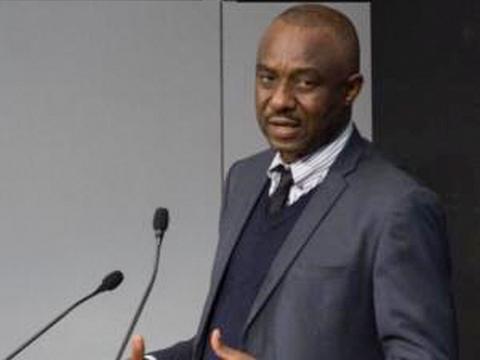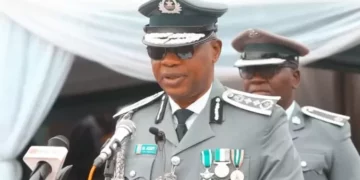International security and foreign policy strategist, Jonathan Sandy-JPJ, has facilitated the adoption of the Maputo Declaration for the establishment of Southern African Development Community (SADC) and a cross-border criminal justice dialogue forum on terrorism, violent extremism, and its financing.
During the adoption of the declaration in Maputo, Mozambique recently, Sandy-JPJ delivered an address on the theme: “Sharing UN’s Experience in Enhancing Judicial Response to Terrorism and Violent Extremism on the Africa Continent: Lessons Learned, Emerging Challenges and Identifying Opportunities for Consideration.”
Addressing the well-attended high-level gathering of attorneys-general, senior prosecutors, and heads of criminal investigations agencies, Jonathan pointed out that the criminal justice dialogue forum was timely and appropriate.
First, he explained that it was appropriate because peace and stability are at stake in many parts of Africa as a result of the rapid spread of terrorism and violent extremism.
He noted that gathering was “appropriate because working together is inevitable at this point, as we live in a pluralist global or world order – living within complex interdependencies.”
In addition to interdependencies, Jonathan said there were also shared vulnerabilities, especially looking at the dimensions of not only the drivers, causes and the problems of terrorism and violent extremism facing the continent.
He said in 2016 the continent lost over 33,300 lives, adding that the acts of terrorism transverse borders, therefore putting the onus on stakeholders to develop collective solutions.
“It is appropriate because the willingness of senior the attendance and interests dem the increased recognition of the importance of a holistic approach to preventing and responding to terrorism and violent extremism, including the need for a harmonized judiciary approaches to preventing and responding to terrorism and violent extremism across SADC and beyond.”
Jonathan also laid out four points which delegates were expected to reflect on during the dialogue sessions. “First, he said, delegates need to think through whether the approach to fighting terrorism on the continent by means of ‘hard security’ working, or put simply, is terrorism an entirely a military problem?
“Second, how can the military, law enforcement, and criminal justice actors collectively work together to address the scourge of terrorism, violent extremism and their financing?
“Third, what can senior prosecutors and investigators do differently to ensure the combating of terrorism and violent extremism, particularly upholding the rule of law while responding to terrorism, thus guaranteeing the respect of fundamental human rights and based on international norms and standards?
“And finally, how can the judiciary and court systems through their jurisprudence help to guide military actions by means of advice, drafting and harmonization legal instruments, exchange of information or training on legal issues related to the fight against terrorism and violent extremism?”
He said he believes that answering these questions remains crucial.
The seasoned international peace and security expert also noted that neither causes nor effects of terrorism and violent extremism respect national borders.
He asserted that the judicial sector of every country has a critical role to play in the fight against terrorism and violent extremism.
“It’s only by enhancing international cooperation we can succeed in overcoming threats posed as a result of terrorist acts on our continent,” he added.





